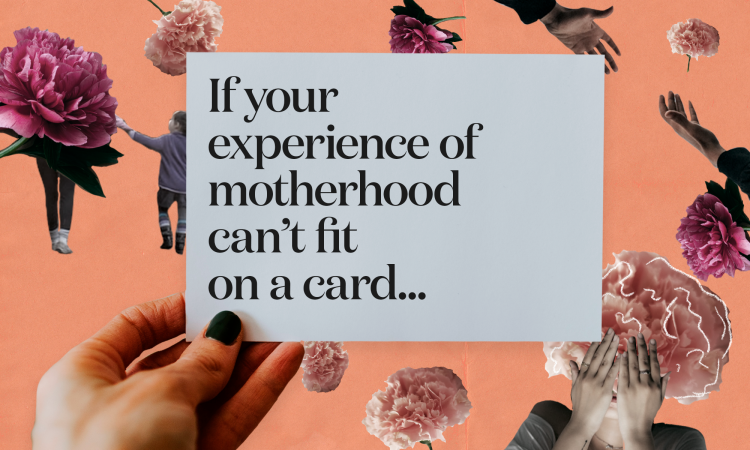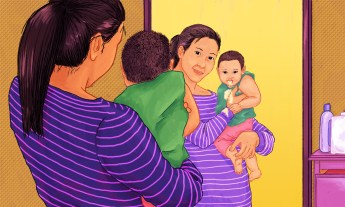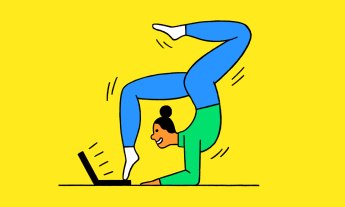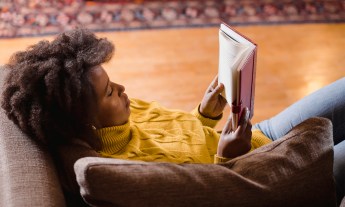
If your relationship with your mother — or with motherhood in general — is complicated, well, congratulations, you’re human.
But it also means that Mother’s Day can be tough, as the internet serves up candy-and-flowers special offers and simplistic good wishes that may describe a version of mothering you don’t identify with.
Dear ones: We got you.
Here are some voices from the real world of parenthood and childhood, whose stories reflect a reality far more complex and rich than anything on a drugstore greeting card.
If you love your mother — but not her choices
Ethan Lindenberger was raised by a loving mom — who chose not to have him vaccinated. When he turned 18 and did some online research, he made the opposite choice. This wise, generous talk explores how this good son opened up a very hard conversation with her.
“I never was rude towards my mother,” Ethan says. “Even in public settings where I expressed how her beliefs were misinformed, I said that she was a loving mother, and that’s important to understand.” Watch this if you’re trying to process how someone can love you fiercely but still make choices that you don’t understand. And you’ll find some useful language for how you can show your love and your independence at the same time.
If your mother has passed away
When painter Alyssa Monks lost her mom to cancer, it brought her to her knees, in a way she could not predict. As she tells it: “After the funeral, it was time for me to go back to my studio. Painting is what I’ve always done, so that’s what I did. And here’s what happened: That safe place I created in my other paintings, it was a myth. It didn’t work. And I was afraid. I didn’t want to paint anymore.”
Her talk explores how such a fundamental loss can change what you value, what you are, what you make. Alyssa’s newer paintings are shaped by her experience of losing her mom, and they are beautiful, haunting and honest. But they did not come easily. As she says: “Let’s take the opportunity to find something beautiful in the unknown, in the unpredictable, and even in the awful.”
If you haven’t given birth, but you’re a mother in your own way
First of all, you’re awesome. Vicki McLeod’s talk is a celebration of a woman’s choice to live child-free — and a call to define this life not by what it doesn’t contain, but what it does. For so many women, society has long assumed that the only truly meaningful life contains children. McLeod claims that we can have that same sense of fulfillment — with or without kids.
The word she likes for this state is “otherhood,” a term coined by Melanie Notkin (watch her own TEDx Talk). As McLeod says: “Otherhood is a place where we find purpose, wholeness, meaning and satisfaction. It’s where we trust that a life of creative purpose is not exclusive to procreation, and that our legacies are not just biological. It includes loving, mentoring and nurturing the other humans that cross our path.”
In an inspiring closing statement, she says: “Trust that what life serves you is a magnificent unfolding, and that the spiritual warrior in you chose this path and put you on it, because it leads to your fulfillment and the world’s.”
If you’ve ever wondered, “Why didn’t my mother protect me?”
Every woman in Khadija Gbla’s family was subject to genital mutilation, a custom in her birthplace of Sierra Leone. Khadija’s mom put her daughter through this harmful practice, leaving her with a lifetime of scars and a deep question: Why?
As Khadija tells it: “I said to my mom, ‘Your act, your action, no matter what your defense may be’ — because she thought she did it out of love — ‘what you did out of love is harming me, and it’s hurting me. What do you have to say for that?’ She said, ‘I did what I had to do as a mother.’ I’m still waiting for an apology, by the way.”
This is a talk about facing the hardest question a child can ask a mother — “Why didn’t you stop the world from hurting me?” — and a deeply moving (and sharply funny) personal story of moving forward bravely, even in the face of a lack of answers.
If you’re a stepmother, a sperm-donor father, an IVF kid …
“Every now and then, all parents may wonder: ‘Am I a good enough parent?’” says Veerle Provost. But for parents whose families are formed through IVF, surrogacy, adoption, step-parenting, she says there’s often a heartbreaking second question: “‘Am I a real parent?’”
Veerle, a bioethicist and philosopher, shares an elegant experiment that explores how the concept of family is both deep-rooted and flexible. Her research shows, quite firmly, that what creates a family isn’t biological processes — but warmth, love and caring.
“What I want you to remember as members of families, in no matter what form or shape, is that what families need are warm relationships,” she says. “And we do not need to be professionals to create those. Most of us do just fine, although it may be hard work, and from time to time, we can do with some advice. But remember — you’re the expert on your family, because you live your family life.”
If your mother raised you in a faith that you now don’t believe
Megan Phelps-Roper was one of those little kids that parents drag to protests — with the distinction that her parents’ form of protest, as part of the notorious Westboro Baptist Church, was hateful enough to make the national news. Eventually she realized that to be a better human, she needed to make a break. In this talk, she describes how she found her moral grounding in a shared humanity and how that helped her make the incredibly hard decision to move away from the people she most loved.
“My mom said something to me a few weeks before I left Westboro when I was desperately hoping there was a way I could stay with my family, the people I love with every pulse of my heart,” says Megan. “She said, ‘You’re just a human being, my dear, sweet child.’ She was asking me to be humble — not to question but to trust God and my elders. But to me, she was missing the bigger picture — that we’re all just human beings. That we should be guided by that most basic fact, and approach one another with generosity and compassion.”
If your mother no longer recognizes you
Tony Luciani’s mom had been living with dementia for a few years, and he felt her drifting away. As he says: “I’d watch her slowly climb the stairs, and she wasn’t the mom I grew up with. I saw, instead, a frail, tiny, old woman.” Until, that is, a lucky accident unlocked an artistic collaboration, one that celebrates her spirit and her story.
“Mom was losing her short-term memory,” he says, “but was better recalling her younger years. So I’d ask, and she would tell me stories.” By recognizing his mother’s present reality — instead of only focusing on what was lost — he was able to spend many rewarding years with her, and she with him. As Tony says: “For me, it’s about being present and really listening.”
If your parent has transitioned
Growing up, Jonathan Williams thought of his dad as an “alpha male.” But when Paula Stone Williams heeded the call of authenticity and transitioned, Jonathan had a hard time knowing what to do with this new woman in his life. As Paula puts it: “When one person in a family transitions, the entire family transitions, whether they want to or not.”
This talk is about the narrow path to a shared understanding of identity — and the confusion, pain and even anger felt along the way. Jonathan is honest and detailed about his struggles to get to know Paula, sharing his inner monologue about their first lunch together: “Did my dad like fries? I don’t remember. I think he liked them. But she wasn’t eating them,” he says. “Here’s this woman who knew everything about me, and I knew nothing about her.” Beyond the easy answers, this is a relevant talk for any family going through uncharted change on their way to a new truth.
If you’re a single mother or raised by one
In this energetic talk, Valeria Peraza shares how she learned to love her status as the daughter of a single mom, sharing a three-step formula that emphasizes gratitude, resilience and self-determination.
When Valeria started asking her mom for more details about her early life and how she came to live with her, it led her to a new understanding of how lucky she truly was. “Learn to recognize your own value,” she says. “Don’t compare yourself to others, because there is always going to be someone that is in a better situation than you and someone that is in a worse situation than you.”
“What happened in the past came to teach you a lesson, not to burden you,” she says. “So take that lesson and let it make you stronger.”
If your children are annoying you. Right now. Literally, even as you read this
In this fun talk, Josh Shipp suggests that sometimes, a kid’s most annoying traits are the clues to their future success. Starting with the story of the “lazy, distracted” schoolkid whose principal assured his father he’d “never amount to anything” (spoiler: you’ve definitely heard of this kid), Shipp celebrates the children who have excess energy, overactive imaginations and general too-much-ness – and the wise adults who help these kids channel their potential in a productive direction.
“Lonnie’s mother was excellent at this,” he tells us. “Lonnie was meddlesome and mischievous, always getting into things. As a kid he almost burned down his family’s home because he attempted to cook rocket fuel on the stove, as you do. Lonnie’s mother, bless her, she didn’t lose her cool. She had the patience … to notice that her son had scientific curiosity. She redirected him: ‘Let’s get you a hot plate. Would you take this outside somewhere more safe?’ Today, Lonnie Johnson holds more than 80 patents and is the inventor of the national treasure: the Super Soaker.”
And, yes, OK: This might not be the talk you’re ready to hear right now, if you’ve been cooped up with kids for a while. But maybe it is.
In any case, hang in there, and happy Mother’s Day.











